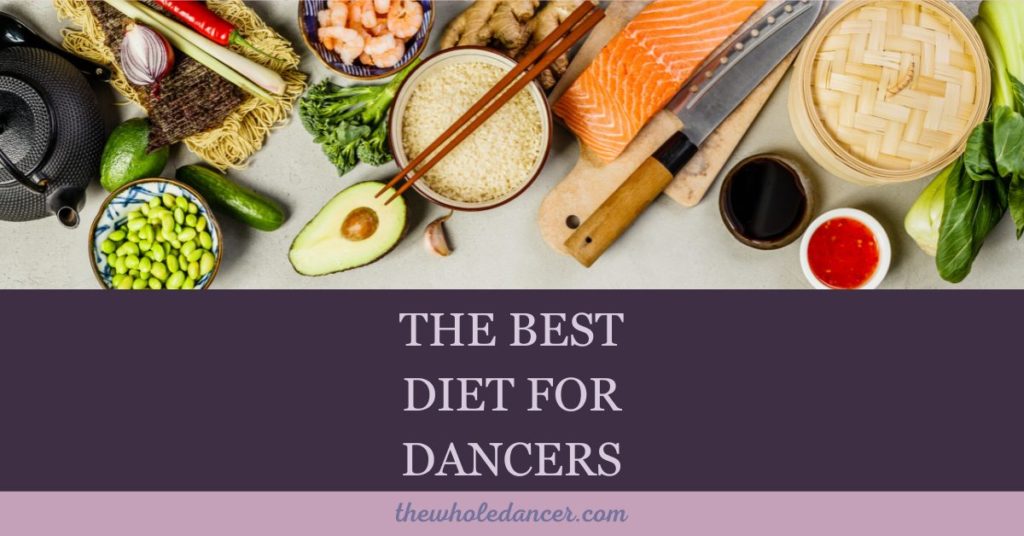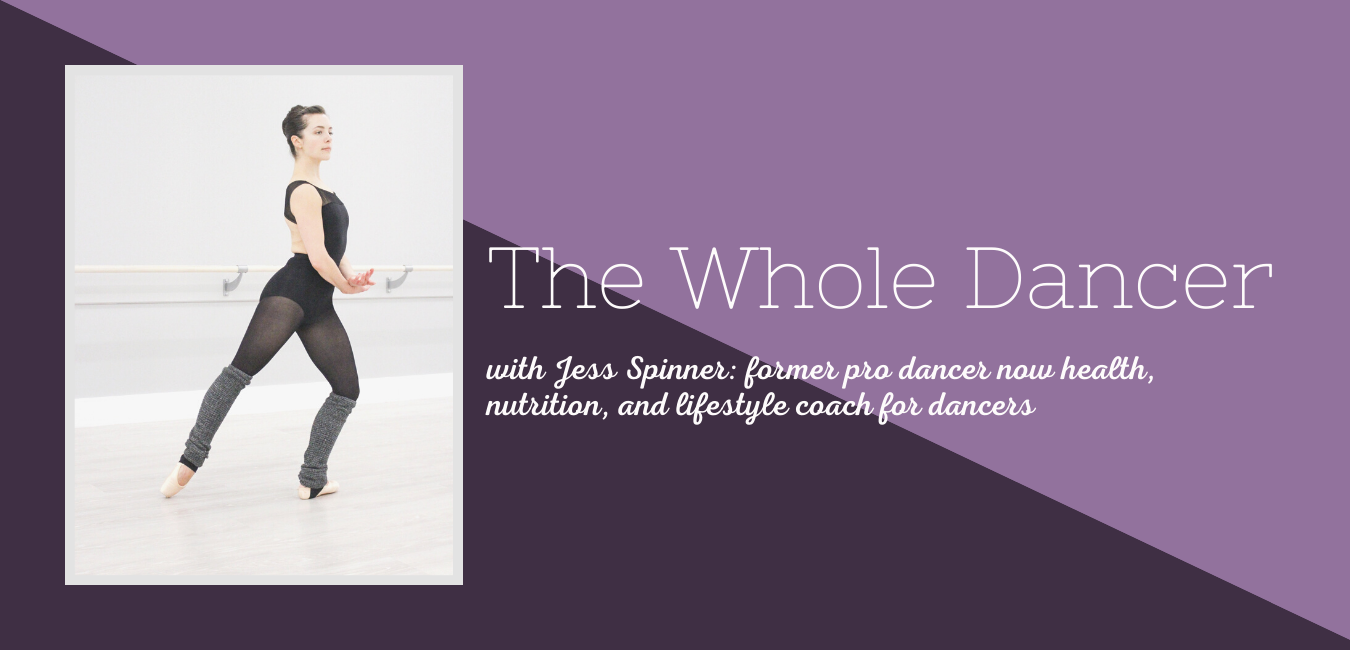Constantly overthinking about food choices is relatively common among dancers. Even dancers who don’t fixate on what the “right” choices might be, likely have times of questioning or doubt.
There’s also a false idea floating around that there might be a perfect way of eating to achieve the ballet “aesthetic” of thinness that many of us feel pressured to attain. Most dancers conclude that the best diet for them is one that’s restrictive or minimal.
It doesn’t help that a lot of teachers still feed into this notion. I remember one of my most beloved ballet teachers once telling us that when she needed to lose weight she’d just cut out the cakes and cookies. She was incredibly well intentioned, but her advice just reinforced the idea that a dancer’s diet has to be restrictive if you want to look the part.

So what is the best diet for dancers?
First, let me qualify the fact that when I say “diet,” I’m referring to an eating style or meal plan. Dancers don’t benefit from dieting in the traditional sense where some restrictive, limited plan is set in place. If you ever find yourself dieting, even if it’s recommended to you by a nutrition professional, odds are you’re in need of some support.
So, what meal plan or style of eating is best for dancers? I’ve come across dancers who’ve run the gamut of eating preferences…paleo, vegan, intermittent fasting, vegetarian, mediterranean, high-carb, low-carb, and the list goes on. I’ve also come across nutrition professionals who have declared that one of those eating plans was the best for a dancer.
It’s my belief that there is no single best diet for all dancers. I’d also take that a step further and say if a nutritionist, dietitian, or nutrition coach tells you there’s one way of eating that works for everyone, they’ve got a lot more to learn.
The approach to food that actually works for all dancers
There are some eating principles that can be incredibly supportive to dancers. These ideas can work across the board. We’ll stay away from calling them rules or making them total absolutes. Consider how you might incorporate these principles into your own approach to food.
- Make sure complete eating is a priority.
Dancers require protein, carbohydrates, and fats in order to support their body’s function and recovery. If you skimp on one, odds are you’ll fall short of what you need to perform at your peak.
For dancers, with a schedule that’s packed with classes and rehearsals, the only way to eat in a complete and sustaining way is eating throughout the day. Don’t let hours go by between meals and snacks. That can not only lead to lagging energy but also increases the potential for overeating later in the day. When you eat consistently, your energy also stays consistent.
- Prioritize food quality and nutrient density.
When you think about the quality of your food, you’re going to end up eating a diet that provides the healthiest sources of protein, antioxidants, and fiber. By doing this you’ll aid digestion, build or maintain muscle, and support immunity.
By eating foods that provide a range of nutrients, you’re also going to avoid nutritional deficiencies. In order for a body to perform at the highest possible level, you need to cover your nutrient bases. If you’re unsure whether you’re deficient in any key nutrients, reach out to your doctor. Request a blood test to assess vitamin and nutrient deficiencies.
- Include the foods that provide joy and help you meet your energy needs.
For dancers, to support yourself from a food relationship standpoint, you also have to include the less-nutrient dense but joy-filled options like cake, cookies, chocolates, and desserts — if that’s what makes you happy. Eliminating sugar or treats completely will leave you feeling deprived and may even make it harder to meet your body’s energy needs.
There is no single way of eating that is best for all dancers
You might think it would make life easier if there was some “perfect” set of meals or foods to help you achieve peak performance and personal best body for dance. But you’re an individual. Your body doesn’t run the same way as the dancer next to you.
It takes time to figure out the best way of eating for your personal needs. However, spending to time figuring it out will support your best dancing. It’s also not necessarily a straight path. If you’re in need of support to feel confident in your food choices and body, then take a bold step today and schedule your coaching consultation with me. It’s free, no obligation, and the best way to figure out if the coaching I provide is what you need to uplevel your performance. If you’re ready to dance with maximum energy, and to thrive in any dance environment: schedule your call here.
